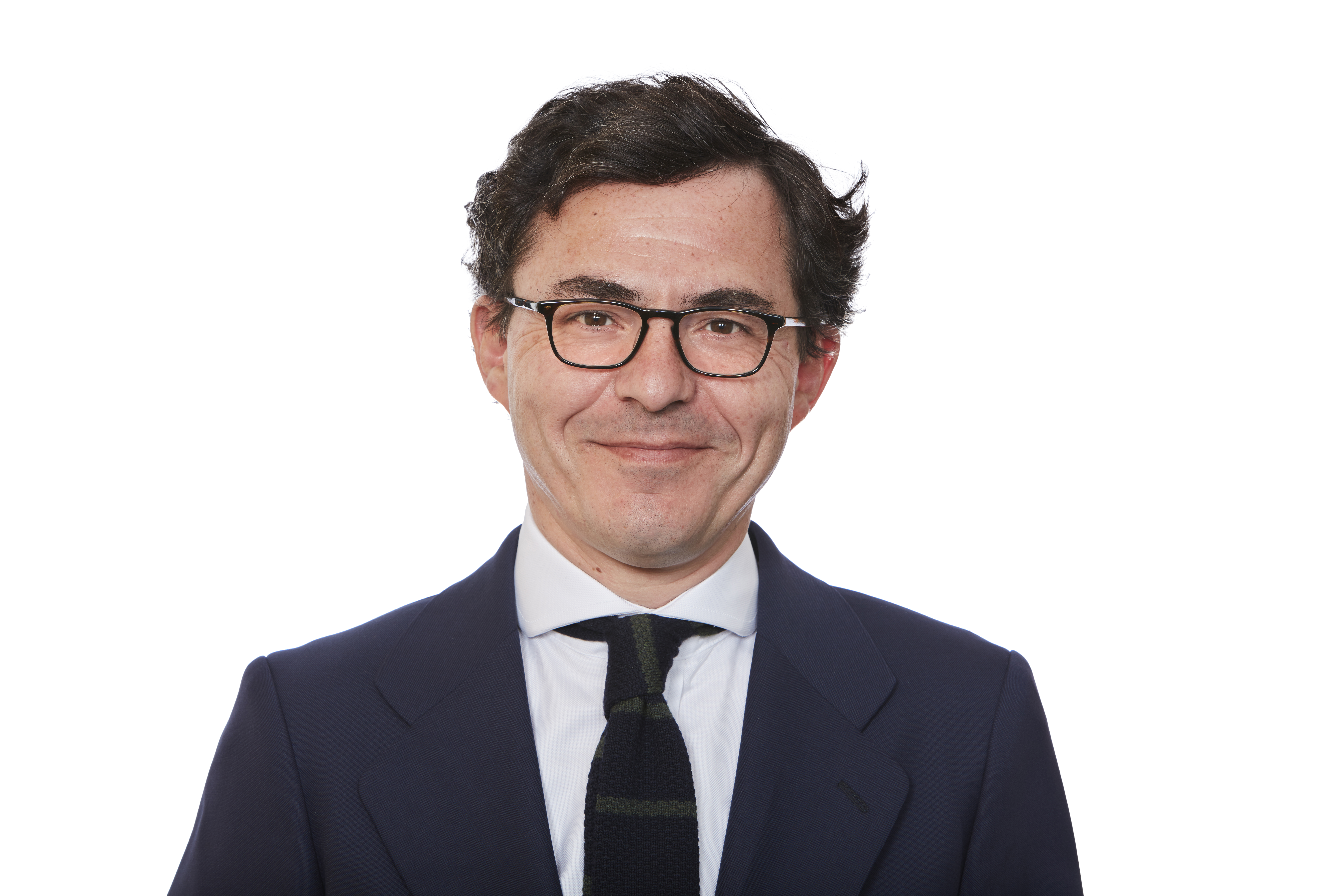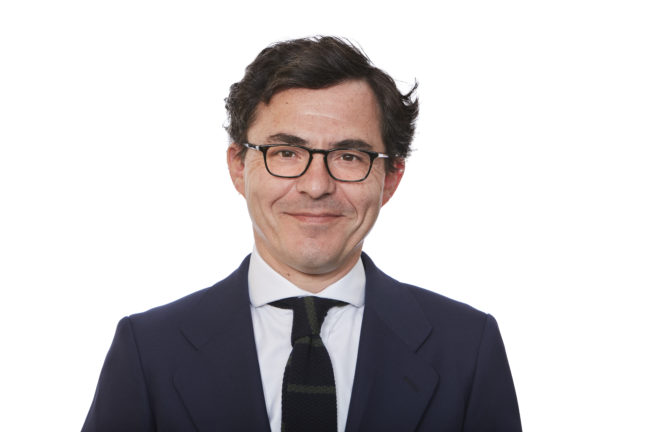Entrevista con Antonio Sánchez Montero, socio responsable del departamento de Corporate de Pinsent Masons en España.

Antonio está especializado en el asesoramiento en fusiones y adquisiciones, participando en transacciones, tanto nacionales como internacionales, para firmas de private equity y venture capital, así como para clientes industriales.
TTR – ¿Cómo describiría la actividad del mercado de M&A español en el primer semestre del año? ¿Las sensaciones son positivas?
A.S. – El patrón de actividad sigue siendo positivo en el primer semestre. Los mismos factores que impulsaron el mercado a lo largo de 2017 siguen vigentes y no parecen haber perdido tracción: en particular, la existencia de financiación bajo condiciones atractivas y la percepción de que la recuperación económica, si no su crecimiento, está consolidada. La crisis previa, unida a la propia recuperación, ha propiciado también una mejora en la posición (incluyendo una mayor internacionalización) de las propias compañías que pueden ser objeto de operaciones corporativas y por tanto incrementado tanto su atractivo como el interés inversor.
TTR – ¿Cree usted que la reciente formación de un nuevo Gobierno en nuestro país puede incidir de algún modo en el mercado de M&A en el corto y/o medio plazo? ¿Cómo?
A.S. – En principio, la formación de un nuevo gobierno garantiza una cierta estabilidad, que probablemente se mantenga hasta el final de la legislatura. En un entorno estable, el impacto en el mercado debería ser inapreciable, si bien puede tener una cierta incidencia en la adopción de determinadas medidas legislativas que podían haber quedado confirmadas en un futuro próximo (por ejemplo, el ajuste de los pagos a cuenta en el impuesto de sociedades, que podría demorarse). La “debilidad” del nuevo gobierno o, más bien, sus dificultades para adoptar nuevas medidas de calado, pueden garantizar, paradójicamente, que el entorno en el que el mercado ha venido creciendo se mantenga estable.
TTR – En el primer semestre del año han surgido numerosas informaciones acerca de firmas de private equity que se encuentran en el proceso de levantamiento de fondos. ¿De dónde suele provenir esta financiación? ¿Cree usted que la segunda mitad del año nos deparará grandes operaciones en este segmento de mercado?
“Las fuentes de financiación tradicionales siguen presentes en el mercado, pero sí se aprecia un mayor protagonismo de otros actores (family offices)”
A.S. – El interés en la industria se mantiene: representa un sector de actividad altamente profesionalizado, en el que además la crisis ha servido tanto para mejorar significativamente el proceso de análisis de las operaciones y su gestión posterior, como para promover innovación e imaginación. Las fuentes de financiación tradicionales siguen presentes en el mercado, pero sí se aprecia un mayor protagonismo de otros actores (family offices). En cualquier caso, la captación de inversores está apoyándose además en estrategias más flexibles, esquemas de co-inversión, SMAs, o esquemas de titulización de series específicas de deuda vinculada exclusivamente a una inversión, lo que de alguna forma también amplia la base de posibles inversores. Estos se ampliarán o contraerán conforme los ciclos cambien, pero al menos el espectro de posibles inversores se habrá ampliado en todo caso.
TTR – A priori, ¿qué sectores diría usted que son más susceptibles en la actualidad de beneficiarse de inversiones de firmas de private equity? ¿Cuáles considera que tienen un mayor potencial?
A.S. – Dos preguntas que deberían tener una misma respuesta y cuya formulación podría invertirse: aquellos sectores que ofrecen un mayor potencial deberían ser al mismo tiempo los que mayor atractivo actual presentaran para las firmas de capital riesgo. Si nos atenemos al número de operaciones y no a su volumen (aspecto que para responder a esta pregunta me parece secundario), apuntaría hacia la tecnología (o compañías fuertemente apalancadas en actividades en la que la tecnología es un elemento distintivo), restauración, salud e infraestructuras sanitarias o energía. Sin embargo, también creo que algunos sectores se benefician de un efecto emulación, que, obviamente, puede dificultar un adecuado retorno de la inversión. Siendo cierto que los inversores también han flexibilizado sus estrategias de creación de valor, incluso de permanencia en los activos, el ímpetu inversor en algunas industrias está elevando precios más allá de la propia tendencia al alza a la que asistimos de forma generalizada. Esta circunstancia exigirá una mayor imaginación.
TTR – En base a la experiencia que acredita usted en el segmento venture capital. ¿cómo definiría usted la posición actual del mercado español en este segmento de mercado? ¿cree que aún hay margen para que los players locales impulsen su crecimiento o considera que éste se basará en la interacción con inversores internacionales?
“Por ahora, me temo, sin un grupo de Friends & Family el emprendedor está perdido…”
A.S. – No creo que España ocupe precisamente un papel relevante en este segmento: ni en términos de proyectos/compañías ni en número y calidad de los inversores. Ello quiere decir que nuestro margen de crecimiento es muy significativo y lo será más si proliferan las iniciativas que propician el emprendimiento tanto desde el ámbito de la educación como del inversor. El grado de talento es idéntico al de otros países, pero no probablemente la educación para ser audaces: eso ralentiza tanto el atrevimiento, la valentía para aventurarse en una empresa, como el valor para confiar en el emprendedor e invertir en él. Mientras que en segmento del capital riesgo los partícipes españoles son especialmente protagonistas (más si cabe en algunos segmentos del mercado), en el ámbito del venture capital la interacción con inversores internacionales se me antoja fundamental. Por ahora, me temo, sin un grupo de Friends & Family el emprendedor está perdido…
TTR interviews Antonio Sánchez Montero partner at Pinsent Masons in Spain.
Antonio specializes in M&A and venture/private equity work, corporate transactions, as well as in general company law matters and commercial contracts.
TTR – How would you describe the activity of the Spanish M&A market in 1H18? Is the outlook positive?
A.S. – The pattern of activity continues to be positive in the first six months. The same factors that drove the market during 2017 remain in force and do not seem to have lost traction: in particular, the existence of funding under attractive conditions and the perception that economic recovery, if not its growth, is strong. The previous crisis, together with its recovery, has also led to an improved position (including greater internationalisation) for the companies that can themselves be the target of corporate deals, thereby increasing both their attractiveness and investor interest.
TTR – Do you believe the recent formation of a new government in our country could influence the M&A market in any way in the short to medium term? How?
A.S. – In principle, the formation of a new government guarantees a certain stability that is likely to be maintained until the end of the legislature. In a stable environment, the impact on the market should be negligible, although it may have a certain impact on the implementation of certain legislations, which might have been confirmed in the near future (such as the adjustment of payments on account for corporation tax, which could be delayed). The “weakness” of the new government, or rather its difficulties in adopting new stricter measures, can, on the other hand, guarantee that the environment in which the market has been growing remains stable.
TTR – In 1H18, there were numerous reports regarding private equity firms that are in the process of raising capital. Where does that funding usually come from? Do you believe 2H18 holds large transactions in this market segment?
A.S. – Interest in the industry remains: it represents a sector of highly professionalised activity, in which the crisis has also served to significantly improve the process of analysis of operations and its subsequent management, as well as to promote innovation and imagination. Traditional funding sources are still present in the market, but there is a greater prominence of other players (such as family offices). In any case, attracting investors now relies on more flexible strategies, such as co-investment schemes or securitization schemes for specific series of debts linked exclusively to an investment. In some ways, this broadens the base for potential investors. As the cycles change, these will go on to expand or contract, but in any event, at least the range of potential investors will have grown.
TTR – Which sectors would you say are more susceptible to benefit from private equity investment at present? Which have greater potential?
A.S. – Two questions that should have the same answer and that could be reversed in order: the sectors that offer the greatest potential should also be those that are currently most attractive for venture capital firms. If we stick to the number of operations, rather than volume (an aspect that seems secondary to me in answering this question), it would point towards technology (or companies strongly engaged in technological activities), catering, health, healthcare infrastructure and energy. However, I also believe that some sectors benefit from an imitation effect, which obviously could hinder an adequate return on investment. While it is true that investors have made their strategies of creating value more flexible, the momentum of investment in some industries is raising prices even beyond the upward trend that we have generally witnessed. This will demand greater imagination.
TTR – Based on your experience in venture capital, how would you define the current position of the Spanish market in this market segment? Do you believe there is still margin for local players to drive its growth or do you consider growth will come from the interaction with international investors?
A.S. – I don’t think that Spain really plays a key role in this area – either in terms of projects and companies, or in the number and quality of investors. This means our growth margin is significant and will be even more so if the initiatives that support entrepreneurship, both from education and the investor, thrive. The level of talent is identical to other countries, but, to be bold, the level of education is probably not: this dilutes the audacity and courage to venture into a company, as well as the courage to trust in an entrepreneur and invest in them. While Spanish participants in venture capital are particularly prominent (more so than in other areas of the market), interaction with international investors seems fundamental to me. For now, I’m afraid, without a group of “friends and family” the entrepreneur is lost…
